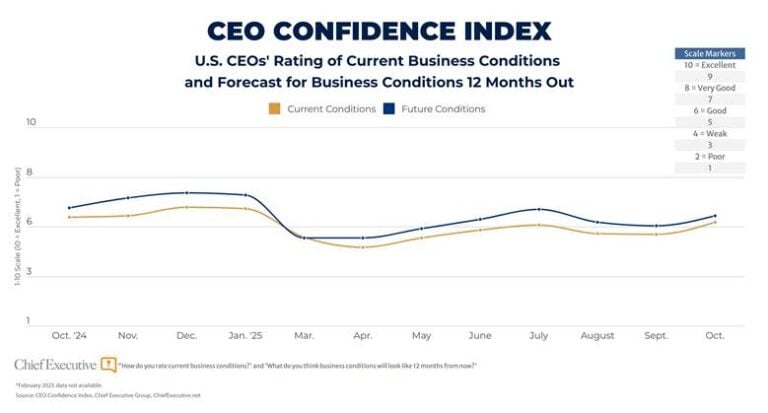

From elite college campuses like Brown and Yale, professors are shunned by Generation Z students, born after 1995, for speech code violations they find offensive. Now, those students are entering the workforce.
The problem with today’s generation is that working with people who might disagree with your politics is defined as being part of a diverse community. Unless we find a way to harmonize our beliefs, the likelihood is that college unrest will spread to the workplace.
To get some idea of how business leaders should address this divisive issue, I interviewed one of the nation’s leading moral psychologists, Jonathan Haidt, Professor of Ethical Leadership at New York University’s Stern School of Business.
Jeff Cunningham: Your new book is called “The Coddling of the American Mind,” and you make the point we have set up an entire generation for failure. Who did the coddling?
Jonathan Haidt: The word coddling means overprotection, and the parents and then the teachers did it all the way from preschool through college. The critical piece of data is right around 2012, (rates of depression) start going up and up and up, especially for girls. They go up steadily to the present time, if you look at how many people are going to the hospital because they’ve cut themselves deliberately, or if you look at suicide, the same pattern (emerges). The conclusion is Generation Z is much more anxious and they seem to be more easily harmed by words and ideas around them. When they go into the work world, they behave differently.
Cunningham: The big complaint seems to be saying something another person disagrees with?
Haidt: The best example is the words of a freshman student at Smith College: “During my first days at Smith I witnessed countless conversations that consisted of one person telling the other that their opinion was wrong. The word offensive is always included in the reasoning. Within a few short weeks, members of my freshman class had quickly assimilated to this new way of non-thinking. I began to voice my opinion less often, to avoid being berated and judged by a community that claims to represent the free expression of ideas.”
Cunningham: We used to call this shaming behavior. Is it meant to make oneself feel superior?
Haidt: Not really. You see, it’s not about your internal feeling. It’s about gaining currency in a prestige economy. Social media suddenly gave us all an attitude in which, if you call someone out publicly, your call-out gets likes, and that’s good. It’s not about how you feel inside; it’s about what does it take to gain prestige in an economy of outrage.
Cunningham: What is the downside?
Haidt: If you’re going to assemble a diverse class, with people from all over the world, different races, different sexual orientations, the last thing you should be doing is teaching people to play up their identities and then to moralize those identities. That’s a guarantee of eternal conflict.
Cunningham: What are the takeaways for the business community?
Haidt: Leaders in the business world see problems like hypersensitivity and the constant conflict over small things. A reader of mine wrote an Amazon review, for example: “this explains why my new bright hires go running to HR, every time there’s a conflict, and then, they won’t show up at the meeting with the person who supposedly offended them.”
Cunningham: How should a business handle Generation Z without ‘coddling’ them even more?
Haidt: It’s going to take leadership and norm-setting. If you don’t set the norms, you’re going to end up with all the problems we have on campus like constant conflict, constant charges, with demands for you to: “settle this thing I heard him say to her, and it hurt me, so I want you to punish him.
Cunningham: What would you say to your people if you were the chief executive?
Haidt: If you don’t want that to be your future, I suggest you give speeches to your people that establish norms that goes something like this: “We have lots of ambitions as to how we can grow this company if we all work together. We’re doing this at a time of rising hatred. We see it all around us. Politics is tearing companies apart. America is torn apart. If we bring our politics to work, we will be torn apart.
“If we want to stay together as a team, we have to put the company first, and that might mean you leave important parts of you at the door. That’s not to say they’re not important to you, but, when we’re together, we have to give each other the benefit of the doubt. We have to hang together as a team.”
Cunningham: Should chief executives feel pressured to make political statements to support their Generation Z employees?
Haidt: Imagine our culture war seeping into all of our schools, so that, when you pick a preschool for your kids, you’ve got to know, “Are you a Red preschool, or Blue preschool?” Imagine picking a restaurant? “Are you a Red restaurant, or a Blue restaurant?” Of course, in the Blue restaurants, we accost people who are Red, and vice versa.
It’s going to fall on business, and business leaders to establish norms. It’s going be hard for any one company to do it on its own, if other companies are behaving differently, but my hope is that just as schools, or, I think, universities have an absolute—even a fiduciary duty to focus on what they’re supposed to do, and not to let politics flood in. I’m hopeful that such a norm will spread through business, as well. It’ll certainly make the lives of leaders a lot easier.
Read more: Staying Out Of The Overthinking Trap




0

1:00 - 5:00 pm
Over 70% of Executives Surveyed Agree: Many Strategic Planning Efforts Lack Systematic Approach Tips for Enhancing Your Strategic Planning Process
Executives expressed frustration with their current strategic planning process. Issues include:
Steve Rutan and Denise Harrison have put together an afternoon workshop that will provide the tools you need to address these concerns. They have worked with hundreds of executives to develop a systematic approach that will enable your team to make better decisions during strategic planning. Steve and Denise will walk you through exercises for prioritizing your lists and steps that will reset and reinvigorate your process. This will be a hands-on workshop that will enable you to think about your business as you use the tools that are being presented. If you are ready for a Strategic Planning tune-up, select this workshop in your registration form. The additional fee of $695 will be added to your total.

2:00 - 5:00 pm
Female leaders face the same issues all leaders do, but they often face additional challenges too. In this peer session, we will facilitate a discussion of best practices and how to overcome common barriers to help women leaders be more effective within and outside their organizations.
Limited space available.

10:30 - 5:00 pm
General’s Retreat at Hermitage Golf Course
Sponsored by UBS
General’s Retreat, built in 1986 with architect Gary Roger Baird, has been voted the “Best Golf Course in Nashville” and is a “must play” when visiting the Nashville, Tennessee area. With the beautiful setting along the Cumberland River, golfers of all capabilities will thoroughly enjoy the golf, scenery and hospitality.
The golf outing fee includes transportation to and from the hotel, greens/cart fees, use of practice facilities, and boxed lunch. The bus will leave the hotel at 10:30 am for a noon shotgun start and return to the hotel after the cocktail reception following the completion of the round.